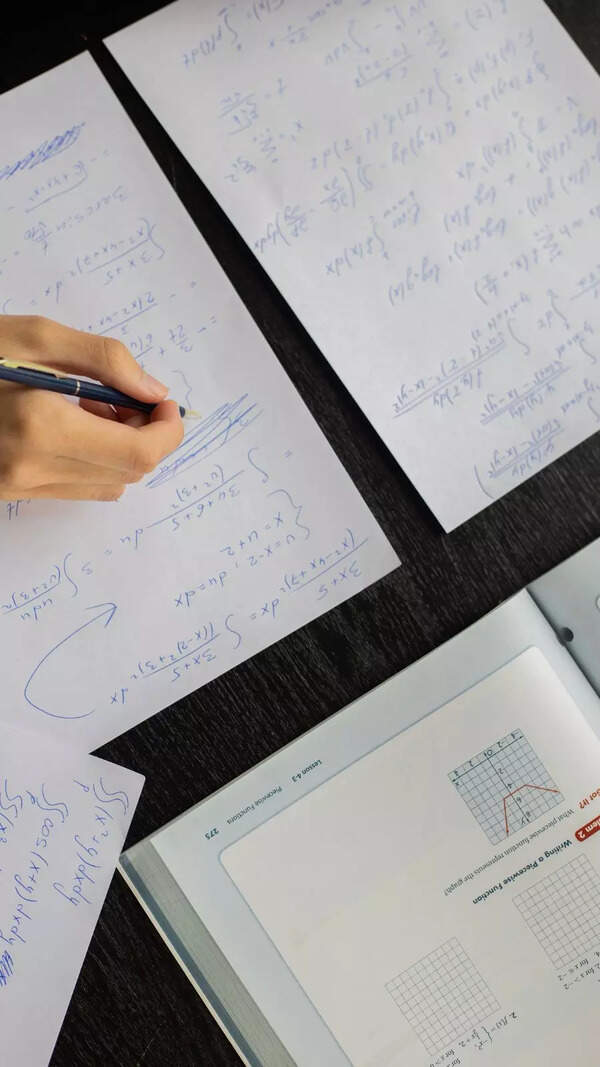- News
- Education News
- News
- Math crisis under Trump 2.0: Can Linda McMahon save US students from flunking fractions and dodging decimals?
Trending
Math crisis under Trump 2.0: Can Linda McMahon save US students from flunking fractions and dodging decimals?
The NAEP 2024 report highlights a significant drop in math proficiency among American eighth-graders, with only 33% scoring proficient. Linda McMahon, the incoming Secretary of Education, plans business-oriented reforms, focusing on STEM, performance-based evaluations, and targeted math interventions. However, concerns remain about the potential commodification of education and the effectiveness of such strategies.
As America grapples with a declining trajectory in mathematics proficiency, the National Assessment of Educational Progress (NAEP) 2024 report delivers a sobering reality check: Only 33% of eighth-graders scored proficient in math, a sharp drop from 41% in 2017. This alarming decline raises serious questions about the future of American education, particularly as former WWE executive Linda McMahon is slated to step into the role of Secretary of Education in the Trump administration's second term. Can McMahon, known for her business acumen, tackle an educational emergency? Or will students be left further behind?
The state of math scores in America
The NAEP data reveals a widening gap in math proficiency across demographic and socioeconomic groups. Here is a snapshot from the report:
- Black and Hispanic students saw a steeper drop, with only 13% and 17% proficiency, respectively.
- Low-income students continue to struggle, with proficiency rates falling to 12%, compared to 39% for their wealthier counterparts.
McMahon as Trump’s education chief: What could be her possible solutions?
With McMahon at the helm, the administration’s approach may veer away from traditional educational reforms towards business-minded strategies. Here’s what to expect:
Private Sector Approach to Education Reform: McMahon's background suggests a focus on restructuring school support through leadership-driven initiatives and entrepreneurial funding models rather than traditional education reforms. Instead of expanding charter school enrollments indiscriminately, the emphasis could shift to resource optimization and targeted financial aid for math-focused improvement zones, though skeptics remain wary of corporate-style management creeping into classrooms.
STEM-Focused Curriculum Overhaul: The Trump-McMahon plan is likely to emphasize STEM learning, with funding incentives for math and coding programs. This aligns with Trump's previous STEM budget proposals, which aimed to allocate $200 million annually for science and math programs.
Standardized Testing Reforms: McMahon may advocate for performance-based evaluations instead of traditional standardized tests, akin to corporate KPIs (Key Performance Indicators). However, this could alienate educators who argue that such metrics overlook the complexities of classroom learning.
School-Level Math Interventions: Expect targeted math tutoring programs at the elementary and middle school levels to help struggling students catch up. Pilot programs in some districts have shown that small-group instruction can improve proficiency by up to 20% according to recent educational studies.
Higher Education Math Preparedness: McMahon’s strategy could include partnerships with colleges to offer bridge programs in math for incoming students who require remediation. This could address the necessity of remedial math courses for over 50% of community college students, a fact highlighted in National Center for Education Statistics data.
American math education: Bold promises, thin results?
The Trump administration’s education strategy under Linda McMahon could reshape the nation’s academic future. While supporters argue that business-oriented reforms could introduce efficiency and innovation, skeptics warn that such measures may commodify education and further marginalize vulnerable students.
As math proficiency continues to dwindle, bigger questions loom large: Can McMahon outgrow her boardroom instincts and embrace the long, slow grind of genuine reform? Or will students remain collateral damage in an era of bold promises and thin results? One thing is clear: American classrooms don’t need a celebrity executive's playbook—they need substantive change.
Stay updated with the latest education news on Times of India. Explore the CBSE date sheet for Class 10 and 12 across Arts, Science, and Commerce streams.
End of Article
FOLLOW US ON SOCIAL MEDIA
Visual Stories
Hot Picks
TOP TRENDING
Explore Every Corner
Across The Globe











